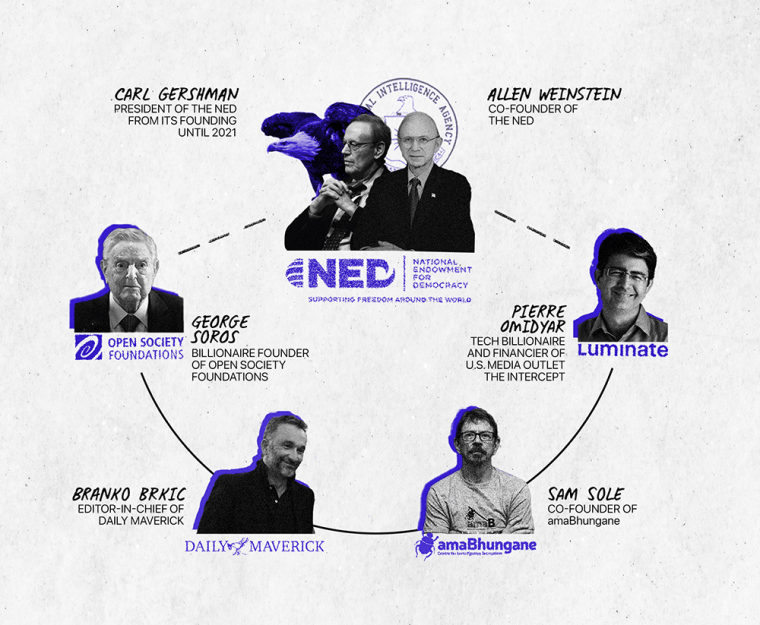“There are no other systematic methods being used in South Africa to generate awareness of democratic principles on a large scale,” the document noted. “Wide propagation of democratic principles can, however, be achieved by publishing material regularly over a period of time in a popular black publication.”
Rather than a gesture of solidarity, this campaign was an example of what was referred to in Washington as “public diplomacy”—US government-sponsored efforts to influence public opinion abroad in ways favourable to its interests. In this case, US officials explicitly laid out their intention to influence South African media to shape narratives in a manner that supported their anti-communist Cold War foreign policy.
“It is hoped that a concrete discussion of democratic values will help to counter the strong Marxist campaigns now being used to coerce South African blacks in the black townships,” the document states, “pointing the way to democratic forms of government being desirable and achievable goals in South Africa.”
Rebranding covert operations with the National Endowment for Democracy
US government funding for the City Press campaign—along with contemporaneous funding for the Institute for the Advancement of Journalism, the Peoples Express community newspaper, and Frontline magazine—was distributed through a then recently created organisation called the National Endowment for Democracy (NED).
Although branded as a “non-governmental” and “independent, non-profit foundation”, the NED was founded by the U.S. government in 1983 under the Reagan administration. According to its founders, the NED was created as a funding vehicle to take over the covert support of political groups around the world which had previously been carried by the Central Intelligence Agency (CIA) and had developed a tainted reputation.
‘’It would be terrible for democratic groups around the world to be seen as subsidised by the CIA,” said Carl Gershman, who served as president of the NED from its founding until 2021. “We saw that in the 60’s, and that’s why it has been discontinued. We have not had the capability of doing this, and that’s why the endowment was created.”
“A lot of what we [the NED] do today was done covertly 25 years ago by the CIA,” said the organisation’s co-founder Allen Weinstein.
As the NED was financing its media campaign in South Africa, it was also funding the mujahideen in Afghanistan, pro-contra organisations in Nicaragua, anti-Soviet trade unions in Eastern Europe, and anti-government groups in Grenada.
Over the past four decades, the NED’s donation network has expanded into a global empire. With an annual appropriation administered through the US State Department, the NED issues more than 2000 grants each year to non-governmental organisations in over 100 countries. According to the NED’s financial statements, during the decade of 2011–20, the organisation issued over US$1.2 billion in grants worldwide.
The NED’s efforts are amplified by working in concert with aid agencies that have been set up by allied governments along with private foundations, with grant recipients often overlapping between the NED and a network of allied state and private donors.
Today, as tensions between the United States and China rise, Washington is intent on contesting Beijing’s influence around the world, particularly in the Global South. The US government has ramped up its efforts to influence international media and public opinion.
Between 2016 and 2020, the NED issued roughly US$150 million globally in media-related grants, at least US$20 million of which was issued to organisations in sub-Saharan Africa.
In December 2021, US President Joe Biden announced that his government would be providing US$30 million as “critical seed money” to launch the International Fund for Public Interest Media.
Continued next page
(156 VIEWS)


